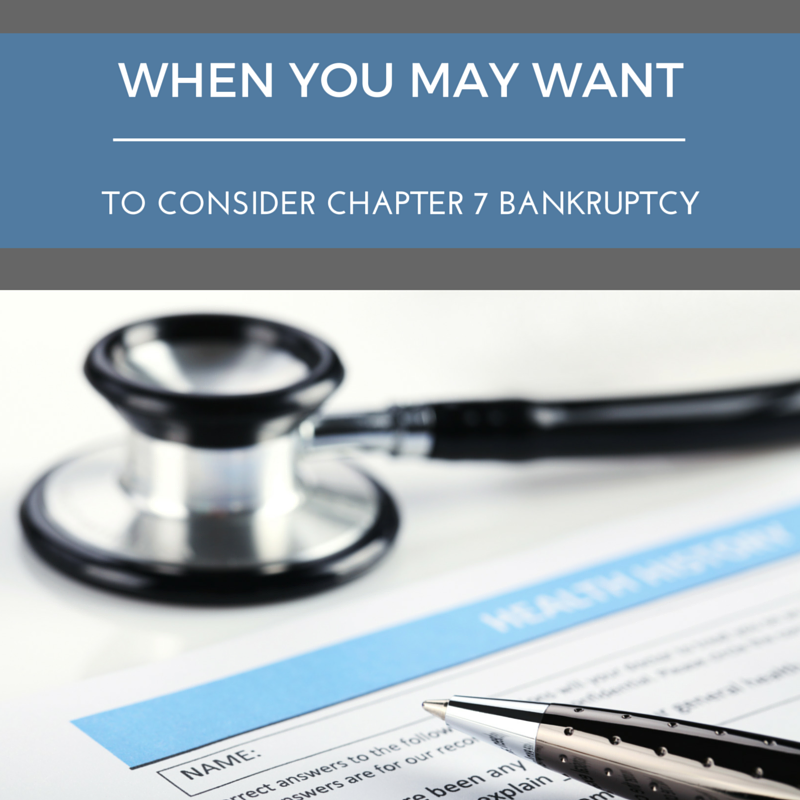When You May Want to Consider Chapter 7 Bankruptcy

Financial hardship can happen to anyone. An unexpected medical emergency can result in expensive bills that are not covered by insurance. The loss of an income, whether due to lay off or the death of a spouse, can make it difficult to meet expenses you used to pay easily.
Too often, consumers live above their means, unaware that one financial emergency could make it difficult, if not impossible, to pay credit card bills or other loans. If you are dealing with collection calls and find you have less money in your account each month than you have bills to pay, you may be eligible for Chapter 7 bankruptcy. Unlike Chapter 13 bankruptcy, which requires you to repay your debts at negotiated lower rates over a three- to five-year period, Chapter 7 eliminates all unsecured debts included in the bankruptcy. These signs may indicate that you are a candidate for Chapter 7 bankruptcy.
Low Income
In order to file for Chapter 7 bankruptcy, your income must be lower than your state’s median income for your household size. You can find your state’s median income at the U.S. Trustee website.
In Pennsylvania, the median income for a family of four is $86,112, in New Jersey it is $111,088 and in Delaware it is $91,899.
No Money Left After Paying Household Expenses
If you have money left over at the end of the month, you may not qualify for Chapter 7. Under federal law, money left over is considered discretionary income and the court will require you to use that to repay creditors.
If you do have discretionary income, your bankruptcy may be converted to Chapter 13.
Very Few Assets
Under Chapter 7, you are allowed to keep certain types of property which are exempt from seizure under the law. Any property that is nonexempt can be sold in order to repay your creditors.
In most states, you may keep tools you use for your employment and most household furnishings. You may even be able to remain in your home or keep your vehicle.
You Can’t Pay Your House or Car Payments
If you are current on your mortgage and can’t afford to continue paying them, you may be able to remain in your home. The same is true of any vehicle payments.
However, if you have equity in your home, you may be required to use that equity as an asset and your bankruptcy may be converted to Chapter 13. If you are behind in your mortgage or your vehicle payments, you may still be able to file Chapter 7, but you may lose your property.
Debts are Dischargeable
At the end of the process, your bankruptcy is “discharged,” which means that your debts are eliminated. Some debts may not be discharged under the law such as student loans, child support or income tax. If you have this type of debt, you may need to file Chapter 13 as they may be included in a debt repayment plan.
Bankruptcy is not a “one-size-fits-all” option. Your best option is to contact a bankruptcy attorney who can review your circumstances and recommend what is best for you under the law. There are pros and cons to both Chapter 7 and Chapter 13.
Our attorneys can explain both options and help you decide which is right for you.



